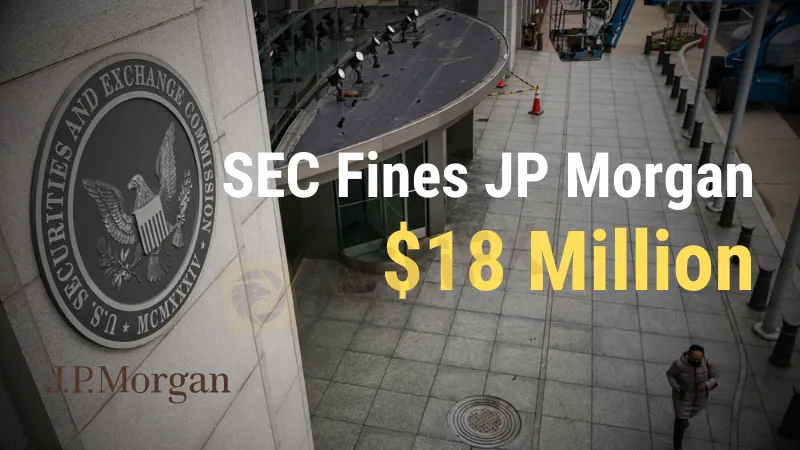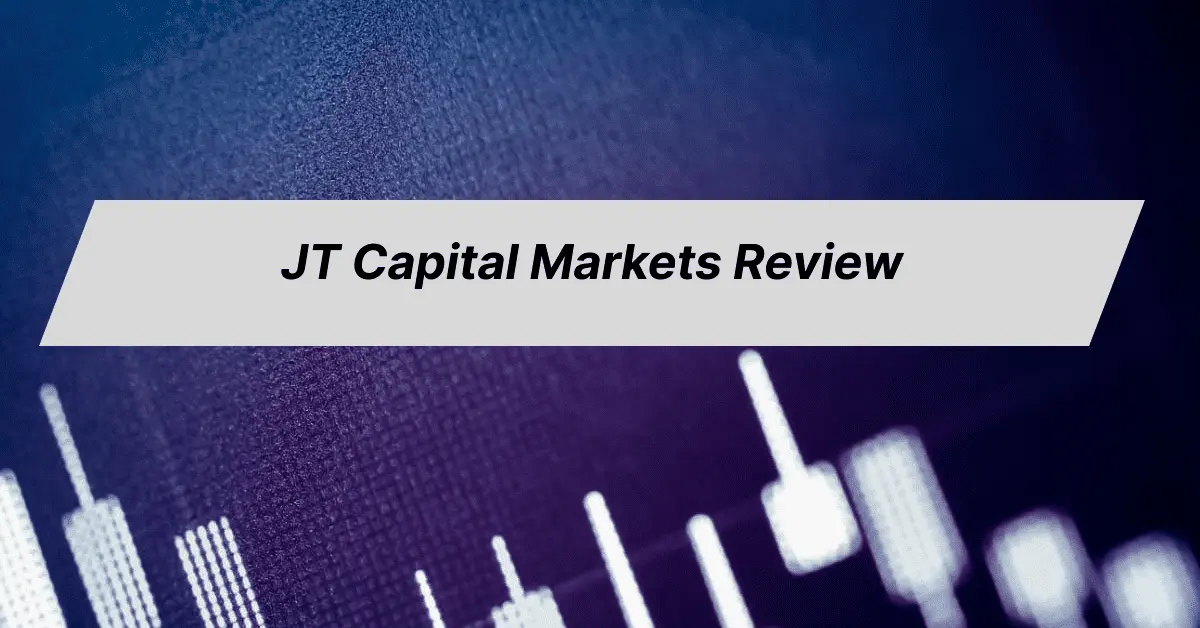简体中文
繁體中文
English
Pусский
日本語
ภาษาไทย
Tiếng Việt
Bahasa Indonesia
Español
हिन्दी
Filippiiniläinen
Français
Deutsch
Português
Türkçe
한국어
العربية
SEC Fines JP Morgan $18 Million
Abstract:JP Morgan hit with $18M fine for SEC whistleblower rule violation. Learn about the case and its implications. Stay informed with our updates.

J.P. Morgan Securities LLC (JPMS) has found itself in hot water with the Securities and Exchange Commission (SEC) and has agreed to pay a substantial $18 million penalty to resolve allegations of wrongdoing. The SEC has accused JPMS of obstructing its clients from reporting potential violations of securities laws to the regulatory body, a clear violation of whistleblower protection rules.
Here's the crux of the matter: From March 2020 to July 2023, JPMS repeatedly requested its retail clients to sign confidential release agreements, but only if they had received credits or settlements from the company exceeding $1,000. These confidential agreements mandated that clients keep any information related to the settlement and underlying facts confidential. More importantly, these agreements prohibited clients from voluntarily reaching out to the SEC, even though they were allowed to respond to SEC inquiries.
The SEC has come down hard on JPMS for this practice. According to Gurbir S. Grewal, Director of the SEC's Division of Enforcement, “Whether it's in your employment contracts, settlement agreements, or elsewhere, you simply cannot include provisions that prevent individuals from contacting the SEC with evidence of wrongdoing.” Essentially, JPMS put its clients in a difficult situation by making them choose between receiving settlements or credits from the firm and reporting possible securities law violations to the SEC. This either-or scenario not only compromised critical investor protections but was also found to be illegal.

Corey Schuster, Co-Chief of the Enforcement Division's Asset Management Unit, emphasized that “Investors, whether retail or otherwise, must be free to report complaints to the SEC without any interference.” Anyone drafting or using confidentiality agreements needs to ensure they do not include provisions that obstruct potential whistleblowers.
JPMS has been found in violation of Rule 21F-17(a) under the Securities Exchange Act of 1934, a whistleblower protection rule explicitly prohibiting actions that hinder individuals from communicating directly with the SEC staff regarding possible securities law violations. While JPMS did not admit wrongdoing, it agreed to a series of measures. These include accepting censure, committing to cease from violating the whistleblower protection rule in the future, and paying the $18 million civil penalty.
The SEC's investigation into JPMS's practices was conducted by Marie DeBonis and Jessica Neiterman, with the assistance of John Farinacci, and it was overseen by Virginia Rosado Desilets, Brianna Ripa, Mr. Schuster, and Andrew Dean, all members of the SEC's Asset Management Unit. Rua Kelly of the Trial Unit also provided support during the investigation.
In conclusion, JPMS's $18 million penalty underscores the importance of adhering to whistleblower protection rules and ensuring that individuals, regardless of their position, can freely report concerns to the SEC. This case serves as a stark reminder that the integrity of our financial system relies on transparency and accountability, and actions that obstruct these principles will not be tolerated.
Explore J.P. Morgan's profile on WikiFX for in-depth information: Visit their WikiFX page here: https://www.wikifx.com/en/dealer/8981623292.html

Disclaimer:
The views in this article only represent the author's personal views, and do not constitute investment advice on this platform. This platform does not guarantee the accuracy, completeness and timeliness of the information in the article, and will not be liable for any loss caused by the use of or reliance on the information in the article.
Read more

JT Capital Markets Review
JT Capital Markets is a UK-registered foreign exchange broker with an operating history of approximately 5–10 years. It maintains a commercial website at www.jtcapitalmarkets.com, which, according to WikiFX’s Time Machine snapshots, was last captured in August 2020 before going offline under the guise of “maintenance”.

Gold Breaks $3,300 Barrier—Time to Celebrate or Caution?
Gold hits record high—rally or risk ahead?

FCA Proposes Simplifying Investment Cost Disclosure for Retail Investors
FCA plans to cut “imprecise” transaction cost disclosures for UK investment products, making cost info clearer and easier for retail investors.

SEC Warns of Love Scams and Pig Butchering Investment Schemes
SEC's new campaign warns about relationship investment scams, highlighting red flags, losses, and protective measures. Stay safe from "pig butchering" schemes.
WikiFX Broker
Latest News
eXch Exchange to Shut Down on May 1 Following Laundering Allegations
How a Viral TikTok Scam Cost a Retiree Over RM300,000
FCA Proposes Simplifying Investment Cost Disclosure for Retail Investors
JT Capital Markets Review
Fresh Look, Same Trust – INGOT Brokers Rebrands its Website
Think Scams Won’t Happen to You? That’s Exactly What Scammers Count On
Beware of Gold Bar Investment Scams: Rising Threats
SEC Warns of Love Scams and Pig Butchering Investment Schemes
Kraken Launches Forex Perpetual Futures on Kraken Pro Platform
Elites Gather in Taipei to Forge a New Forex Ecosystem
Currency Calculator


